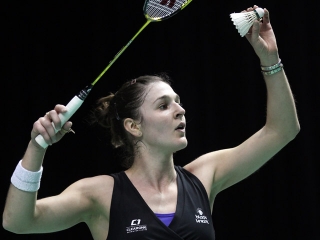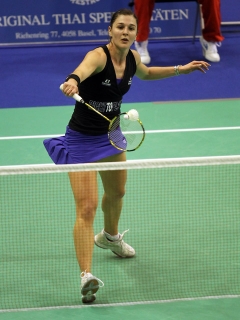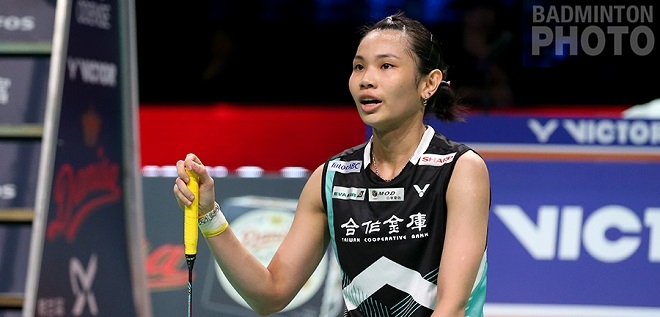Anna Rice from Canada is playing in her last international competition in Delhi for the XIXth Commonwealth Games. She is publishing a diary on Canada’s Website cbc.ca
Here is her last piece, where she compares the Commonwealth Games to the Olympic Games.
Photo: Badmintonphoto (archives)
The individual badminton tournament is now well underway and Canadians are doing great so far.
As my roomie Grace Gao tried to get her mind off the competition for a short while, she asked me how the Commonwealth Games compare to the Olympics.
Over the course of our conversation I came up with five differences that I’ve noticed, based on my experiences at the Athens and Beijing Olympics, and the Melbourne and Delhi Commonwealth Games…
1. Different Sports
The Commonwealth Games includes several sports that aren’t featured at the Olympic Games, and vice-versa.
This gives many different athletes the unique opportunity to experience a multi-sport Games atmosphere. Some of the sports included in the Commonwealth Games that aren’t in the Olympics are: squash, netball and lawn bowling.
2. Para and able-bodied athletes together
The Olympic Games are always followed by the Paralympics, but the athletes from able-bodied and para events rarely get to compete in the same multi-sport event — except when it comes to the Commonwealth Games.
This is a really cool aspect to these Games, because it allows the able-bodied athletes to learn a lot about para athletes and how they train and compete. For example, at dinner tonight I was fascinated by the stories from the Nigerian women’s wheelchair table tennis team. Who knew wheelchair table tennis was so popular in Nigeria?
3. Different countries
There are a lot of countries represented at the Commonwealth Games which don’t send athletes to the Olympics.
Some of these nations — like Wales, Scotland, Northern Ireland, Jersey, Guernsey and Falkland Islands — compete under Great Britain’s flag for the Olympics, and it’s much more competitive and difficult to qualify.
Others, like the African country of Lesotho (one of the poorest countries on the planet), struggle to qualify athletes for the Olympic Games. So for them, the Commonwealth Games is the major pinnacle of their sporting careers.
4. Smaller cafeteria
Being the foodie that I am, I can’t compare these two events without mentioning the cafeterias.
Though the food in both is good, I have to admit the Olympic cafeteria is superior, mainly because of the broader selection that’s available because of the fact that there are more countries with varying food habits.
5. Fewer mega-stars
Another difference between the Olympics and the Commonwealth Games is that there are fewer mega-stars here. Though it’s always exciting to see Kobe, Rafa Nadal or LeBron walking around the village, it’s also cool to see athletes from lesser-known sports getting some recognition.
I don’t know if this is related, but there are also far less incidents of doping at the Commonwealth Games compared to the Olympics. In fact, I don’t believe there have been any doping violations so far here in Delhi, a record that the London 2012 organizers could only dream of having two years from now.
Anna Rice from her blog for www.cbc.ca
More Blog features from Anna at http://www.cbc.ca/commonwealthgames/blog/author/author613d2/
![CWG 2010 – Anna’s Blog Anna Rice from Canada is playing in her last international competition in Delhi for the XIXth Commonwealth Games. She is publishing a diary on Canada’s Website cbc.ca Here is her […]](https://www.badzine.net/wp-content/uploads/Newsflash-thumbnail.png)








Leave a Reply